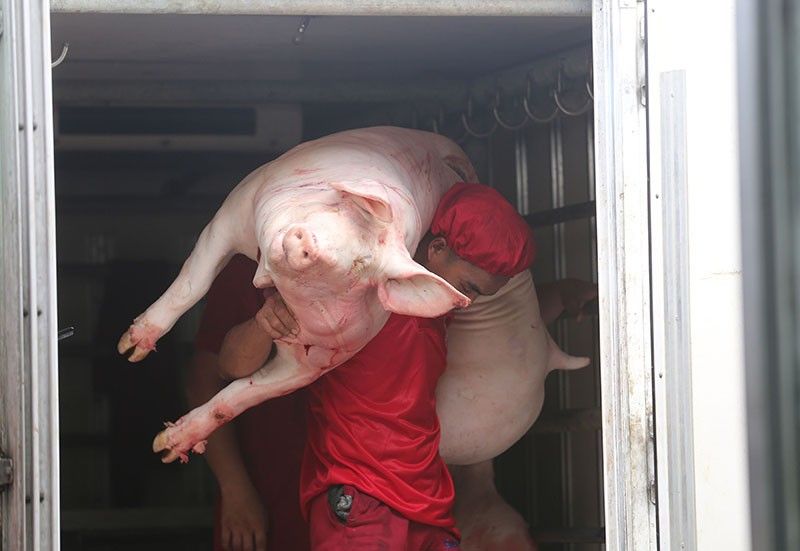Commentary: The missing key to combat African swine flu

Pundits are skeptics to policy panacea, to any cure-all solution that promises to fix all problems such as the impending threat of African swine flu (ASF) that this year has plagued certain states and regions all over the world.
In the Philippines, the ASF scare appears to have grown when early this week the Department of Agriculture raised concerns on the high mortality rate of pigs raised in backyard farms. According to the Bureau of Animal Industry, the mortality rate of pigs in the area they have monitored increased to 20 percent compared to the average 3 to 5 percent.
The swine raising industry is currently the most extensive activity of the agriculture sector, with the most significant economic footprint split between backyard farming at 64% and commercial raisers at 36%, based on Philippine Statistics Authority figures.
Though studies are still underway, the DA and other concerned agencies are working toward exigencies to quarantine and minimize potential damage to the local P260-billion industry by systematically culling hogs within identified areas of importance.
The government has moved to ban the importation of pork and pork products from countries affected by ASF such as China, Russia, North Korea, Laos, Cambodia, Vietnam, Ukraine, South Africa, Zambia, Moldova, Bulgaria, Belgium, Germany and Romania.
Meanwhile, nations such as Taiwan have issued stern warnings for carry-on bags from the Philippines to prevent possible biocontamination.
Just as the old saying goes, "An ounce of prevention is worth more than a pound of cure," what is needed today is a policy key to prevent the threat of ASF from causing harm to our population. The way to solve the problem is through specific prescriptions that will help in solving the paradox of food safety.
Policy challenges and solutions
One of the critical mistakes of policy-making is taking on a reactive stance in all matters.
The Philippines is one example, where policies are often made after the damage is done, all because of the failure to view the problem as systemic. Albert Einstein uses a different approach to problem-solving: to look ahead, anticipate problems by factoring all relevant variables, and create necessary contingencies to counter possible threats to ensure the longevity and impact of the solution to be implemented.
One case that can best illustrate this point is a solution set last year by the DA. In 2018, the department issued Memorandum 22 prohibiting the feeding of food scraps or wastes to pigs to prevent the spread of ASF. While the intent is clear and noble, there are still gaping vulnerabilities that need to be addressed.
First, it is hard to monitor. With the lack of surveying systems, such a policy would have limited to no substantial impact, and it would be hard to hold accountability measures.
Second, there is the question of access; given the current high prices of feeds, raisers will have little to no interest in following the guidelines unless the cost of feeds is substantially lowered. By studying these two intermingling variables, it shows the only way to solve the problem is not through reactive solutions but by implementing systemic reforms and looking beyond the practice of imposing rules that do not necessarily target the root cause for the sake of compliance.
Policy keys
The main challenge for policy-makers is to draft sound plans that zeroes in on the problem origin. In this case, the variable that the DA missed is the feed milling industry, whose contribution has been overlooked, especially regarding its importance to food safety.
One possible solution is to lower the cost of feeds and help local millers by reducing the cost of raw materials integral to the production of animal feeds by lowering tariffs. If the government does so, hog farmers also benefit from gaining access to better, cheaper and more productive feeds that trickle down to quality end products with competitive prices.
More, incentivizing farmers to stick to better practices by using high-quality feeds than risk the spread of ASF with food scraps ensures safety. A market-oriented solution would be to monitor trade margins between buyers and sellers to help ensure equity in the value chain.
Government intervention may cause some to reject the notion in a snap, but government presence and guidance in these challenging cases are more important than ever. The government should partner with stakeholders through capacity building measures such as collaborating with private industries and industry partners by providing post-harvest facilities that will enhance feed production.
Last, the government should support local laboratories to aid in the quality analysis of products to ensure the safety of feeds and improve productivity in the long run. The above challenges and policy keys involve a single case, which shows the importance of creative thinking in the policy-making conundrum. Without expanding vision and foresight to fit the expanded narrative, the opportunity to solve it is missed.
Ren de los Santos is resident fellow for global politics of think tank Stratbase ADR Institute and research manager of Stratbase Group.
- Latest




























